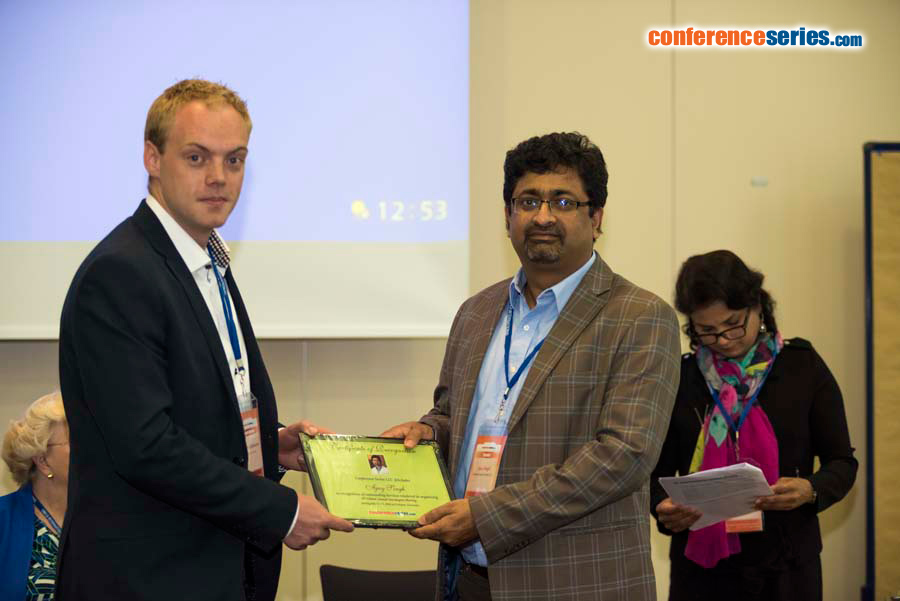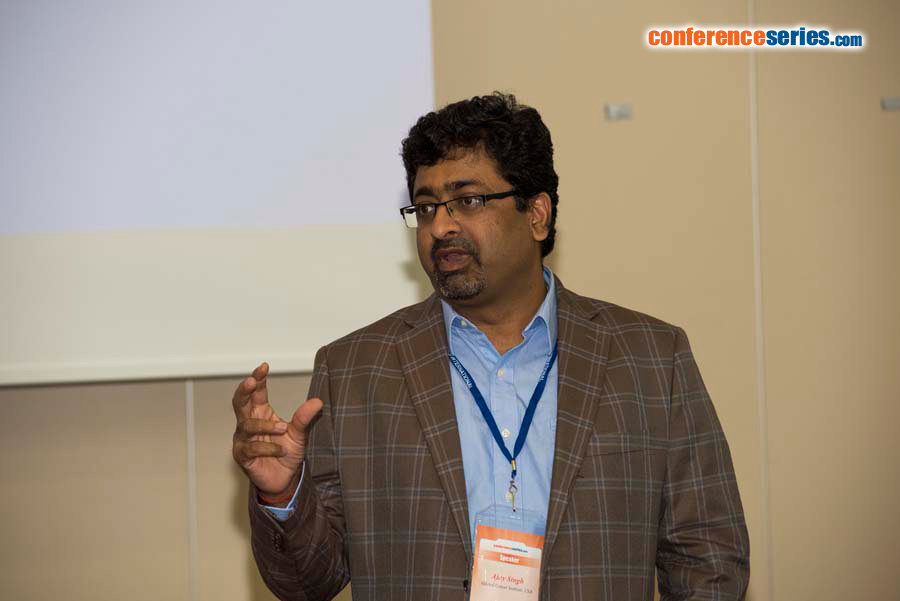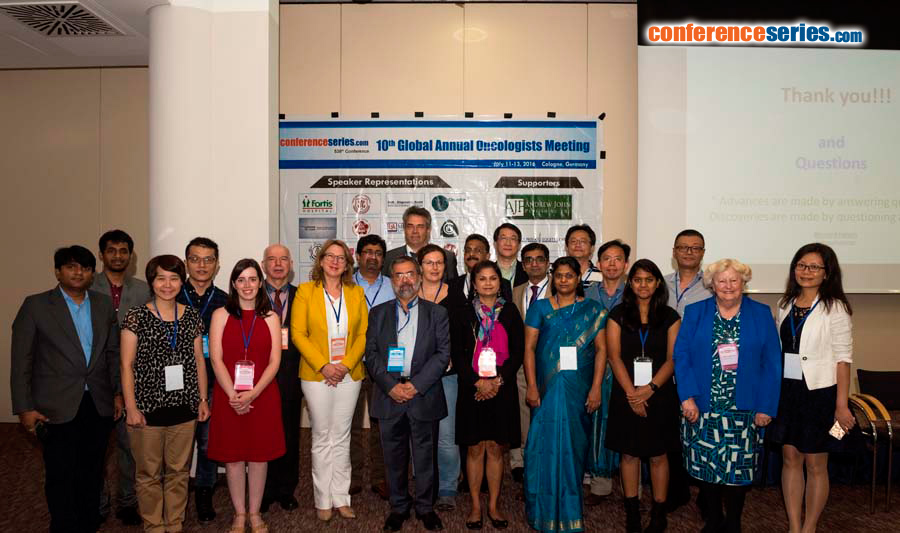
Ajay Singh
Mitchell Cancer Institute, USA
Title: Understanding and Overcoming chemoresistance of pancreatic cancer
Biography
Biography: Ajay Singh
Abstract
Despite a few breakthroughs in therapy, pancreatic cancer (PC) remains a therapeutic challenge for clinicians and translational researchers. Thus, it is important that we develop an improved understanding of the mechanisms underlying the aggressive and drug-resistant nature of pancreatic cancer to help in the designing of novel and effective therapeutic strategies. Emerging data suggest a pivotal role of tumour-stromal interaction in PC chemoresistance. In this regard, we have found an important role of CXCL12/CXCR4 signalling axis in conferring chemoresistance (by potentiating intrinsic survival mechanisms in tumour cells) and facilitating tumour-stromal interaction (through induction of sonic hedgehog; SHH) in PC. Moreover, we have observed CXCR4 up-regulation in gemcitabine-treated PC cells, reinforcing the role of CXCL12/CXCR4 signalling in PC chemoresistance. Additionally, we have conducted laboratory and preclinical studies to examine the therapeutic efficacy of combination therapy targeting CXCR4 and hedgehog signaling pathways alone and in combination with gemcitabine. PCCs/PSCs co-culture treated with gemcitabine (GEM) alone or in combination with CXCR4 antagonist (AMD3100) and/or hedgehog inhibitor (GDC-0449) yielded important findings. Inhibition of either CXCL12/CXCR4 (by AMD3100 treatment) or hedgehog (by GDC-0449 treatment) pathway led to PSCs-co-culture-induced chemoresistance, while co-inhibition of both of these pathways caused almost complete abrogation of co-culture induced chemoresistance of PC cells. In preclinical studies using orthotopic pancreatic tumour xenografts in mice, we observed that tumor growth was suppressed by the treatment of GEM, AMD3100 and GDC-0449 alone or in combination to variable extents. Notably, the most significant anti-tumor effects were seen in the mice group that received GEM along with AMD3100 and GDC-0499. Tumors were regressed completely in 30% of the mice that received this combination treatment of all three drugs. Moreover, livers of all the mice receiving this combination treatment were also completely free from metastatic nodules, whereas highest incidence of metastasis was observed in mice-treated with GEM+GDC-0499 followed by GEM and vehicle-treated mice (when the metastatic incidence was normalized to primary tumor burden). Our findings thus provide a hope that, in due course, we may be able to formulate novel strategies for effective therapeutic care of pancreatic cancer patients.
Speaker Presentations
Speaker PPTs Click Here




